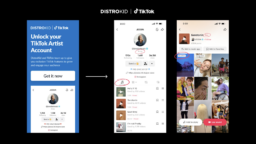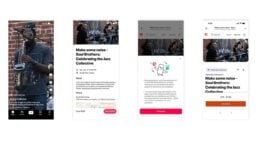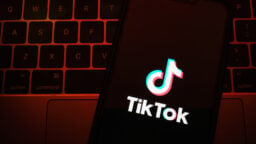Australia has become the latest country to ban the use of TikTok on all government devices, citing national security concerns.
The ban was announced by Australia’s Attorney-General Mark Dreyfus on Tuesday (April 4), saying the decision was triggered by “advice from intelligence and security agencies.”
“The direction will come into effect as soon as practicable,” Dreyfus said in a statement.
But like all other Western countries that ordered a ban of TikTok on federal devices, Australia has also yet to decide on an outright ban of the app in the country.
In Australia, TikTok had 8.3 million users over the age of 18 and above in early 2023, according to data from DataReportal, citing figures published in ByteDance’s advertising resources. The data indicated that TikTok ads reached 40.3% of all adults aged over 18 and 38.2% of the local internet user base in Australia at the start of the year.
Dreyfus, however, said the government will grant exemptions from the ban on a case-by-case basis and with appropriate security mitigations in place.
Australia’s move came over three weeks after New Zealand moved to ban the app from all parliamentary devices, saying “the risks are not acceptable.”
“This decision has been made based on our own experts’ analysis and following discussion with our colleagues across government and internationally,” New Zealand’s Parliamentary Service said in a statement on March 17.
Like Australia, New Zealand also grants exemptions for those who require the app “to perform their democratic duties.”
“The TikTok Application Poses significant security and privacy risks to non-corporate Commonwealth entities arising from extensive collection of user data and exposure to extrajudicial directions from a foreign government that conflict with Australian law.”
Australian Attorney-General’s Department
The office of Australia’s attorney-general has also updated its Protective Security Policy Framework, saying TikTok “poses significant security and privacy risks to non-corporate Commonwealth entities arising from extensive collection of user data and exposure to extrajudicial directions from a foreign government that conflict with Australian law.”
“Entities must prevent installation and remove existing instances of the TikTok application on government devices, unless a legitimate business reason exists which necessitates the installation or ongoing presence of the application,” according to the directive.
In response, TikTok’s general manager in Australia and New Zealand, Lee Hunter, said the company is “extremely disappointed by this decision, which, in our view, is driven by politics.”
“Again, we stress that there is no evidence to suggest that TikTok is in any way a security risk to Australians and should not be treated differently to other social media platforms.”
Lee Hunter, TikTok Australia & New Zealand
“We are also disappointed that TikTok, and the millions of Australians who use it, were left to learn of this decision through the media, despite our repeated offers to engage with government constructively about this policy,” Hunter was quoted by local newswire 9News as saying.
“Again, we stress that there is no evidence to suggest that TikTok is in any way a security risk to Australians and should not be treated differently to other social media platforms.”
“Our millions of Australian users deserve a government which makes decisions based upon facts and who treats all businesses fairly, regardless of country of origin,” Hunter added.
Shortly after Australia’s decision, the South China Morning Post reported, citing sources close to the Chinese and Australian governments that China has issued an “in-principle” invite for Australian Prime Minister Anthony Albanese to visit Beijing in September and October.
If confirmed, the visit would mark the 50th anniversary of the first trip to China by an Australian prime minister. Former PM Gough Whitlam visited Beijing in October and November 1973.
The Australia ban marks a new challenge for TikTok as the company fights to keep its app operating in markets like the US.
In the US alone, TikTok’s parent company ByteDance has so far spent $13.4 million on government lobbying since 2019, with spending in 2022 alone rising to an all-time high of $5.3 million, according to figures from Washington DC-based nonprofit organization OpenSecrets.
Apart from the US, Australia and New Zealand, other countries that banned TikTok from government devices include the UK, Canada, the European Union and France.
Elsewhere in Australia, in February, TikTok started restricting access to some music in the market – effectively ‘muting’ some major record company-signed tracks on existing videos – in what TikTok claims to be a “test” by ByteDance to see how it affects user behavior.
The Australian Recording Industry Association (ARIA) – Oz’s equivalent to the USA’s RIAA – slammed TikTok parent ByteDance for its decision to limit access to major-released music for select Australian creators and users on the TikTok app. ARIA represents the interests of the recorded music industry in Australia, including the interests of the three major record companies: Sony Music Entertainment, Warner Music Group and Universal Music Group.Music Business Worldwide





